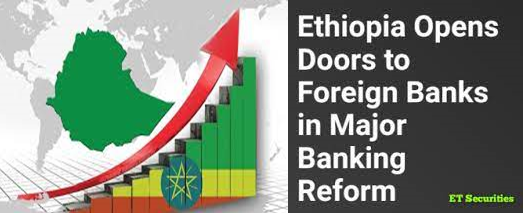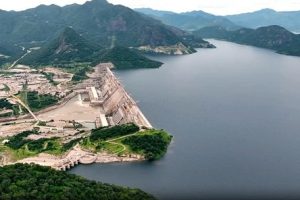
Seven years have elapsed since Abiy Ahmed (PhD) took office as Prime Minister of Ethiopia, ushering in a period marked by ambitious reforms and significant challenges. Upon assuming leadership, Abiy pledged to transform the nation, initiating sweeping changes across political, economic, and social spheres. While notable progress has been made, the nation has also grappled with considerable hurdles.
Since he took the office, the release of political prisoners and the lifting of restrictions on opposition parties have created a more open political landscape. Efforts are also exerted to promote national reconciliation and dialogue aimed at bridging deep-seated ethnic and political divisions. The establishment of the Ethiopian National Dialogue Commission, which was expected to promote and bring national consensus, is also considered as the government’s commitment to pacifying the country.
The Ethiopian government is not only working to pacify the country as well the region. In this regard, Abiy played a pivotal role in mediating peace between Ethiopia and Eritrea, ending decades of conflict and earning him the Nobel Peace Prize in 2019.
Moreover, the government initiated plans to liberalize the economy, attracting foreign investment and promoting private sector growth. And in the last eight months the country has announced the macroeconomic reform, which is a significant milestone in the country’s economic history.
According to Adem Farah, Deputy President of the Prosperity Party, the party, under its leadership, has made significant strides in strengthening democratic institutions, promoting social development, and fostering cooperation-based diplomacy in the country. He emphasized the party’s commitment to achieving “tangible results” in recent years.
Adem highlighted the implementation of “promising economic development projects” driven by the principle of national sovereignty, aiming to move Ethiopia away from dependency. “The Prosperity Party has achieved many successes that will help Ethiopia move from dependency to full sovereignty,” he stated.
Addressing the party’s achievements and future direction, he attributed the impetus for change to addressing long-standing political, social, and economic divisions. He asserted that the government, led by the Prosperity Party, entered office with a thorough analysis of Ethiopia’s historical and current challenges, aiming to provide sustainable solutions.
He pointed to the party’s efforts in creating a participatory and inclusive political environment, citing the inclusion of various political parties in leadership roles despite the Prosperity Party’s decisive victory in the 6th national election. “This opened a new chapter in the Ethiopian political system,” Adem emphasized.
Speaking to the Ethiopian News Agency (ENA), he underscored the party’s prioritization of peaceful conflict resolution as a cornerstone for building a stable political system and social order. He cited the Pretoria Agreement as evidence of this commitment.
As the “largest party in Africa,” Adem stated that the Prosperity Party is dedicated to strengthening African and international relations based on justice and mutual benefit. He affirmed the party’s continued commitment to fostering these continental and international ties.
In a similar vein, the agricultural sector, a cornerstone of Ethiopia’s economy and a livelihood for most Ethiopians, is entering a new era. In this regard, Girma Amente (PhD), Minister of Agriculture, highlighted that Ethiopia’s agriculture has undergone significant transformation, ushering the nation into a ‘new era’ of development.
He highlighted the structural changes implemented, including the expansion of the cluster cultivation method, increased agricultural mechanization, and the shift from rain-fed to year-round farming.
“These advancements have positioned Ethiopia for sustainable growth,” Girma stated, emphasizing the ongoing efforts to build climate-resilient agriculture through the Green Legacy Program.
State Minister of Agriculture, Meles Mekonnen (PhD), provided concrete figures illustrating the sector’s progress. “Prior to the national transformation, 12.5 million hectares were cultivated during the harvesting season. This has now increased to 20.5 million hectares, boosting national production from 293 million quintals to 608 million quintals,” Meles explained.
He particularly underscored the success of initiatives aimed at increasing wheat productivity. “Harvesting season wheat production alone has surged from 48.5 million quintals to 152 million quintals,” he reported. Additionally, summer irrigated wheat cultivation, which began on 3,500 hectares in 2011 E.C, has expanded to 3.5 million hectares, with projections of 172 million quintals.
The Commissioner of the Ethiopian Disaster Risk Management Commission, Ambassador Shiferaw Teklemariam (PhD), noted that these agricultural gains are crucial for enhancing the country’s disaster resilience. “The success in the agricultural sector is directly supporting our efforts to independently manage disaster risks,” Shiferaw said. He also highlighted the implementation of a national policy aimed at achieving self-reliance in humanitarian assistance across all regions.
However, Ethiopia’s reform process has faced significant challenges, notably a surge in ethnic nationalism that has fueled widespread inter-ethnic violence and displacement. The Northern Ethiopia conflict, spanning from 2020 to 2022 and concluding with the Pretoria Peace Agreement, triggered a severe humanitarian crisis and destabilized the nation.
The political landscape remains complex, with ongoing conflicts in various regions. Navigating the diverse political and ethnic factions has proven difficult. The government continues to call for peaceful resolutions, emphasizing that dialogue is preferable to armed conflict, as demonstrated by the lessons learned from the northern Ethiopian conflict.
Despite these obstacles, the government has initiated transitional justice efforts, aiming to hold perpetrators accountable, promote reconciliation, and strengthen human rights and institutional reforms to address historical grievances and the aftermath of the Northern Ethiopia conflict. It is recalled that the Ministry of Justice in last May announced the completion of the transitional justice expert group’s work, with the policy draft now headed for Council ratification.
Moreover, the Ethiopian government has reiterated its commitment to ongoing reforms, including rebuilding conflict-affected areas, fostering national dialogue, and stabilizing the economy. Prime Minister Abiy Ahmed recently announced plans to inaugurate the Grand Ethiopian Renaissance Dam (GERD) after six months, a project nearing its 14th year of construction. Additionally, the previously sensitive issue of access to the sea is gaining traction domestically and internationally.
During March 20th, in Prime Minister Abiy Ahmed’s address to the House of Peoples’ Representatives, he highlighted that Ethiopia’s quest for maritime access has elicited a growing recognition within the international diplomatic community. He emphasized that foreign diplomats acknowledge Ethiopia’s unique predicament as the world’s most populous landlocked country, a factor that significantly impacts its economic and strategic interests.
He pointed out that the significance of the Red Sea and the Nile for Ethiopia’s future has been articulated for years, citing a publication from three years prior that underscored this strategic imperative.
Overall, Ethiopia’s future depends on its ability to address these challenges while maintaining progress in political and economic liberalization. Sustained efforts to promote inclusivity, peace, and sustainable development will be crucial.
BY EYUEL KIFLU
THE ETHIOPIAN HERALD THURSDAY 3 APRIL 2025





